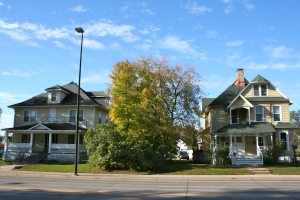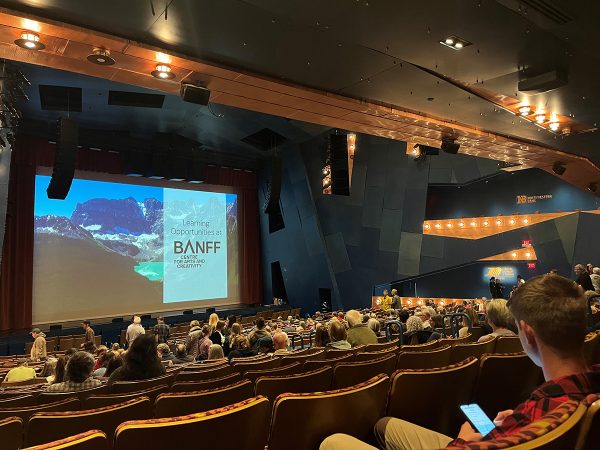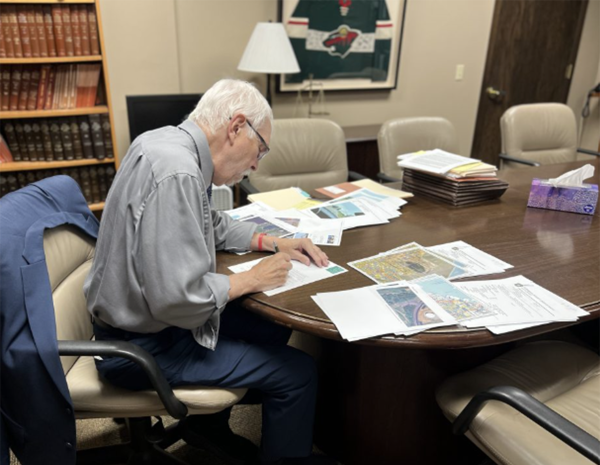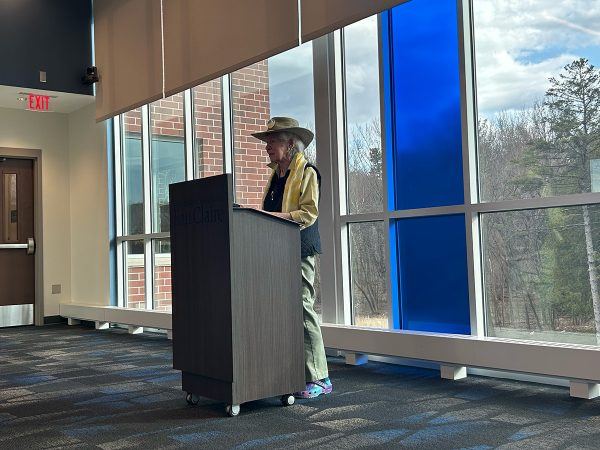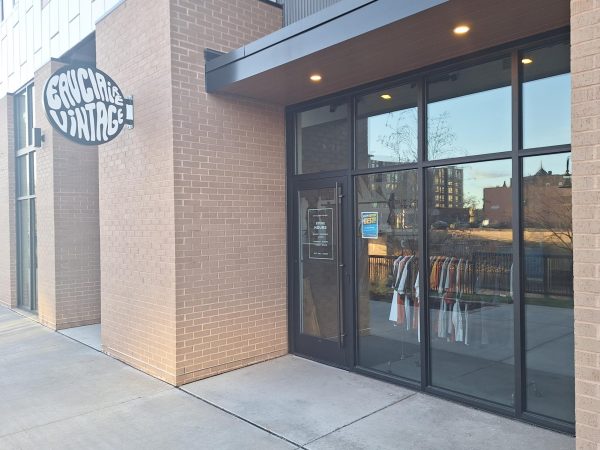Creating lasting bonds
It’s a sunny afternoon in mid-September, and the corner of Farwell Street and Newton Street is resounding with top 40 music, laughter and cheering as car after car full of women pull into the alleyway. They sing along at the top of their lungs, embrace each other on their front porches, wear matching shirts emblazoned with Greek Letters and take pictures to capture these moments with their sorority sisters.
These women are the members of Alpha Xi Delta and Delta Zeta at University of Wisconsin-Eau Claire. The two sororities reside next door to each other on South Farwell Street. That particular day, the members were celebrating Bid Day, one of the most important days of their year. The celebration is held on the day when the chapters welcome a new class of members into the sorority by extending them a “bid” to join.
“Living next to another sorority on Bid Day is kind of fun because it is like a little bit of a competition on singing and who is louder,” said Kaci Mueller, a junior living in the Alpha Xi Delta house this year. “(But) my favorite part of bid day this year was finding out who my new sisters were.”
There are only three sororities and three fraternities on campus at UW-Eau Claire, compared to the 14 sororities and 28 fraternities at UW-Madison. But just because Greek Life in Eau Claire doesn’t mirror that of larger universities, doesn’t mean the interest is lacking. Not a single room is available in either Delta Zeta house or the Alpha Xi Delta house, which hold nine women each.
Greek Life started in Eau Claire with the chartering of Delta Zeta, Epsilon Omega chapter, in 1956. Eight years later, Sigma Sigma Sigma joined them on campus, followed by Alpha Xi Delta the next year. Unlike larger campuses, where the sorority houses would be focused in a central area, only Delta Zeta and Alpha Xi Delta are located next to each other.
Katie Brier, president of Delta Zeta, said that living with her sorority sisters allowed her to connect more with them than she had before moving into the sorority house.
“Living in-house is one of the best ways to form unbelievably strong bonds between sisters,” Brier said.
Alan Reifman, Ph.D., a professor of human development and family studies at Texas Tech University, said he believes that members of Greek organizations are brought together by a common means: they all made the choice to join.
“There is the issue of self selection,” Reifman said in a report called “On Campus: Emerging Adulthood and Adolescent Life.” “In other words, there may be something about people who join Greek-letter organizations – extroversion, risk-taking, excitement-seeking, and so forth – that sets them apart from non-joiners.”
Mueller agrees with Reifman when it comes to the relationship between the sororities on South Farwell. Not only are the chapters neighbors, they are also friends. Mueller said she believes they get along because they share a common bond, the bond that Reifman notes, while adding that she believes they “cherish the meaning of sisterhood.”
Andréa Clark, member of Alpha Xi Delta and president of UW-Eau Claire’s Panhellenic Council, said that the bond among sororities is a major focus of her job as president. The Panhellenic Council is the group of women representatives from each of the three sororities to promote unity within the UW-Eau Claire Greek community.
She described an Easter mixer for the two houses this past spring, hosted by Delta Zeta, where the two groups of women came together to bake and decorate cookies and watch movies together. She said they regularly have these events, especially around the holidays, to celebrate their bond as Greeks and get to know each other better.
“Any event with food always goes over well,” Brier said.
Despite being friends and neighbors, both chapters are founded on bylaws that are fundamentally different from each other. Mueller said this is one way that opinion of Greeks becomes unclear to non-members, because what rules apply to one chapter may not apply to the one next door.
“Someone can explain that isn’t how (our chapter) does things, but when you look at Greek life from the outside, it all blurs together,” Mueller said.
Clark said that this disjointed outside view is one of the greatest struggles that the Panhellenic Council is trying to overcome. She said that her biggest goal as president is to eliminate house stereotypes so that everyone, Greeks and non-members alike, can appreciate that each chapter is growing in there own way.
“The biggest thing is that being Greek is being part of a community,” Clark said. “Our goal is to come across as one. As competitive as we can get, I think it’s really important that people understand that we really do get along, stick up for each other and respect each other.”
While the friendship among the houses is great, the friendships within them are even greater. Clark said she fondly remembers when she lived in the Alpha Xi Delta house last year. The life she shared with her roommates brought her a sense of community and belonging.
“My favorite overall memory from living in the house was the random nights that would turn into the nights that I will always remember,” she said. ” Just having (my roommates) around all the time. I couldn’t have asked for a better house.”
According to a report done by Gallup called “Fraternities and Sororities: Understanding Life Outcomes,” “more than half, 54 percent of fraternity and sorority members have strong relationship with friends and family that lead them to be thriving in the area of social well-being, compared to less than half of all other college graduates, 48 percent.” Clark, Brier, and Mueller all agree that living in house provided them with a sense of social support and security.
Unfortunately, the South Farwell bond is about to be broken. A state law passed last winter requires sorority houses to have a sprinkler system. Because of this new law, Delta Zeta must move out of their house, which lacks the required sprinklers, and into one that meets the law’s requirements.
“We’ve happily lived in the same house for over 20 years with a great relationship with our landlords,” Brier said. “Next year, we will be on the other side (of town) and not too close to anyone else. It will be different, but still good. What makes our house great is that our sisters are living in it.”


